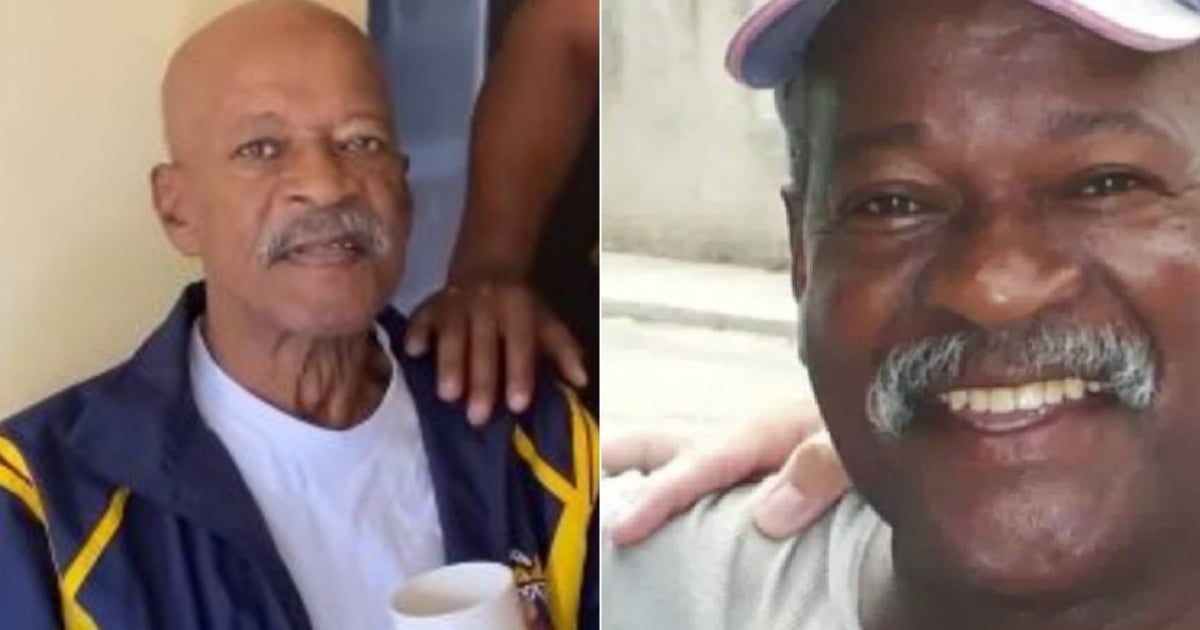A wave of heartfelt tributes has poured in from prominent figures in Cuban cinema, television, and theater following the passing of esteemed actor Samuel Claxton at the age of 82 in Havana. Claxton had been battling a lengthy and serious illness before his death. Friends, colleagues, and fans took to social media to express their sorrow and honor his legacy.
Luis Silva, known for his role as Pánfilo in the popular TV comedy "Vivir del Cuento," shared a photo on Facebook from an episode featuring Claxton. Andy Vázquez also paid homage with heartfelt words. "Rest in peace... after filming an episode of 'Vivir del Cuento,' I had the honor of driving you home, feeling a mix of admiration, nerves, and regret," he wrote. "A rookie like me giving a ride to such a remarkable actor, listening to stories and advice I'll never forget. Your constant smile will always be remembered. Thank you for that moment. Your audience will never forget you!" Vázquez emphasized.
From Miami, actor Erdwin Fernández expressed his grief over being unable to be by Samuel's side in his final days. "Samuel Claxton, my friend. To all my friends, believe me, the distance is brutal, filled with powerlessness and sadness. Samuel Claxton was an incredible man, super cool, and an excellent artist. Fly high, my friend, and rest in peace," he stated. Erdwin also extended gratitude to everyone who supported his colleague, especially Libia Batista Mora, a casting director who led several solidarity campaigns in recent months to aid the late artist.
Despite being one of the most beloved figures in the national artistic scene, Claxton lived in dire conditions, lacking institutional support. His final years were marked by poverty and government neglect. Just this week, the Cubaactores platform sought help to secure disposable diapers for him. Through Batista Mora's efforts, a wheelchair was also arranged for him.
Samuel Claxton battled bladder carcinoma and underwent a percutaneous nephrostomy, which severely restricted his mobility. Unable to climb stairs, he was forced to leave his home in Alamar, relying on the care of his wife and community support. It was his admirers and kind-hearted individuals who stepped in when his need for catheters and collection bags became known—essential supplies not provided by any official institution.
Born in Camagüey in 1943, Claxton participated in over 60 film and theater productions. He is especially remembered for his role as Mantilla in the iconic series "Su propia guerra," and for his appearances in films like "La última cena," "En 3 y 2," and "Caravana." He also shone on theater stages with plays such as "Santa Camila de La Habana Vieja" and "María Antonia."
His situation highlights the critical condition faced by many aging Cuban artists, who lack support from the Ministry of Culture and UNEAC. Online, demands for change were constant. "The least he deserves is to have his catheters and collection bags without having to plead," wrote an outraged user.
Claxton's death leaves a significant void in the Cuban artistic landscape, while also reigniting an urgent conversation about the dignity and care for those who dedicated their lives to the nation's culture.
Remembering Samuel Claxton: Legacy and Challenges
Who was Samuel Claxton?
Samuel Claxton was a celebrated Cuban actor known for his roles in numerous films and theater productions, most notably for his part in the series "Su propia guerra."
What challenges did Samuel Claxton face in his later years?
In his later years, Claxton faced severe health challenges, including bladder carcinoma and a percutaneous nephrostomy, leading to significant mobility issues. He lived in poverty and without institutional support.
How did the Cuban community respond to Claxton's situation?
The Cuban community, including fans and fellow artists, rallied to provide support for Claxton, offering essential supplies and assistance that were not provided by official institutions.
What impact did Samuel Claxton's passing have on discussions about Cuban artists?
Claxton's passing reignited discussions about the lack of support and care for aging artists in Cuba, highlighting the need for systemic changes to ensure their dignity and well-being.
